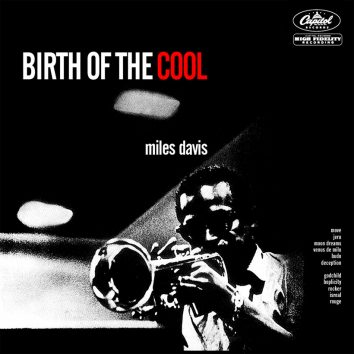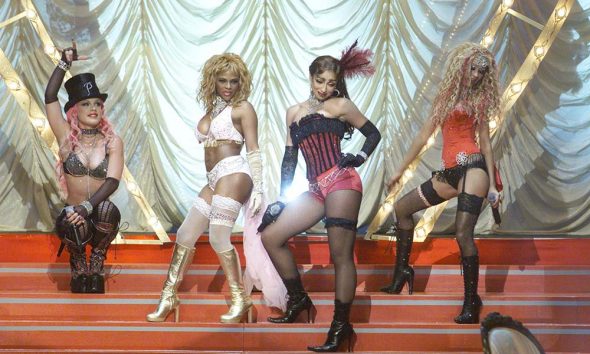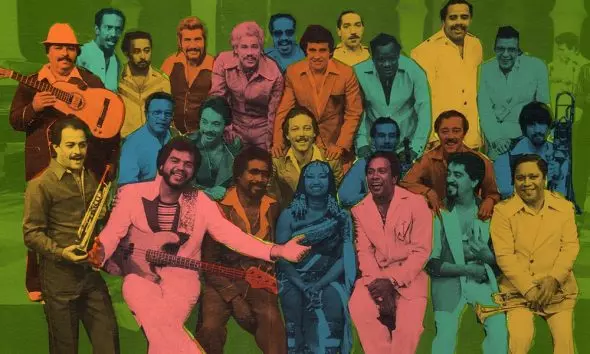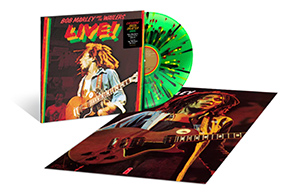Is Gene Vincent’s ‘Bluejean Bop!’ The Best Debut Album Ever?
Who was more authentically rock’n’roll than Gene Vincent? ‘Bluejean Bop!’ has a reasonable claim to be the best debut album ever – it really is that good.
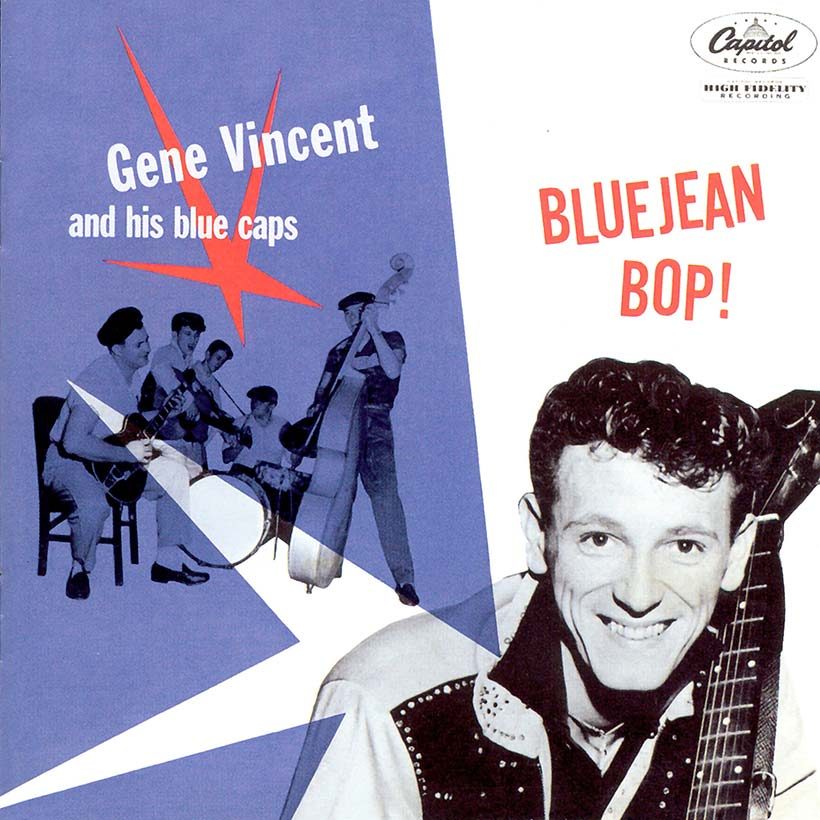
“Blue Gene baby.” A generation of British rockers grew up knowing those two words from Ian Dury’s tribute to “sweet” Gene Vincent. Many fans never heard them from the original – a tragic omission from their musical education. The first breath-filled, intimate seconds from Bluejean Bop!, the first album by the first really raw US rock star: these two words remain utterly arresting, and served as a warning that this was not another wannabe Elvis with nothing original to say.
Who’d heard an introduction like that to an album in 1956? Who was more authentically rock’n’roll, more demanding of your attention than Gene Vincent? Who had a better rock’n’roll band than his Blue Caps? Bluejean Bop! has a reasonable claim to be the best debut album of the 50s – or any decade. So the fact that it’s not in every rock collection is a tragic omission. It really is that good.
Here’s the evidence: There’s Gene himself, singing like a dream, by turns gentle as a sparrow, then rough as the alley cat that ate it. Not the desperate, busted figure he became later, there was an urgency about him nonetheless, like he knew this was his only chance. How many other stars of the era were gripped by permanent pain from a leg that was wrapped in a steel sheath, caused when he wrecked his Triumph motorbike while he was in the navy? What other opportunity would he get with his limp and sense of being on the edge of society as a consequence? The attitude towards disability was not exactly egalitarian in the mid-50s.
Vincent knew he had to take this chance, you can hear it in his every syllable. There’s the atmosphere of the album: clear yet smoky, jumping out at you while keeping its slapback echo distance. It’s like blazing sunshine breaking through mist. Then there’s The Blue Caps, the tightest rock’n’roll band of the 50s, each given a nickname to make them intriguing. Wee Willie Williams on rock-solid rhythm guitar; Jumpin’ Jack Neal, bass; Be-Bop Dickie Harrell on smacking, deeply rocking drums; and Galloping Cliff Gallup’s lead guitar. Gallup’s playing is the definitive guitarist’s guide to rockabilly. He cut 35 tracks with Vincent then quit the business, only surfacing again for one country-styled album in the mid-60s. Yet the imprint he left on rock’n’roll was so strong that even today guitarists doff a (blue) cap to this six-stringed genius.
Click to load video
All of Vincent’s honored musical reputation can be traced to Bluejean Bop! The wildness: “Who Slapped John?” is a street ruck over a girl on record. The surprises: he makes it seem like any song could be made his own, such as the cheesy old “Ain’t She Sweet” and Hoagy Carmichael’s “Up A Lazy River.” The longing to be with the coolest kids in town: “Bop Street.” The stories about girls who are impossibly cool, such as the title track, “I Flipped,” and “Jumps, Giggles And Shouts.” Above all else, his ability to stir up a storm with the minimum ingredients: his brilliant, heartfelt voice and a band who just want to rock. This is making a musical mountain from a rockabilly molehill, lighting a torch for the generations who followed him: all you need is your energy, your artistry, and sheer will.
Click to load video
Artistry: they used that word about Sinatra, Garland, Ellington, Kenton. But it belonged just as surely to Gene Vincent. The way he sold a song, all pent-up energy until it’s suddenly let go with a shout before Gallup drives in with his guitar. He never once sounds self-conscious: he is in touch with what he can do, such a master of his talent that he can just let it flow.
Much of the credit must go to producer Ken Nelson, who captured this magic on tape. Nelson, Capitol’s A&R man and head of their country music section, knew what he was doing: when the band turned up at the studio, sight unseen, Nelson immediately realized how good they were and let them do their thing. They created the atmosphere, and Nelson encouraged them to express their youth, energy and style through their instruments, vocals and yells. The result is the sound of street life in Norfolk, Virginia (also famous for being the starting point in Chuck Berry’s “Promised Land”) in the mid-50s.
Call it rockabilly, call it hillbilly rock, call it country mixed with rhythm’n’blues. Whatever you call it, Bluejean Bop! is the starting point for so much that followed. Blue Gene baby, you were the blueprint for the real rock’n’roll we’ve loved ever since.





